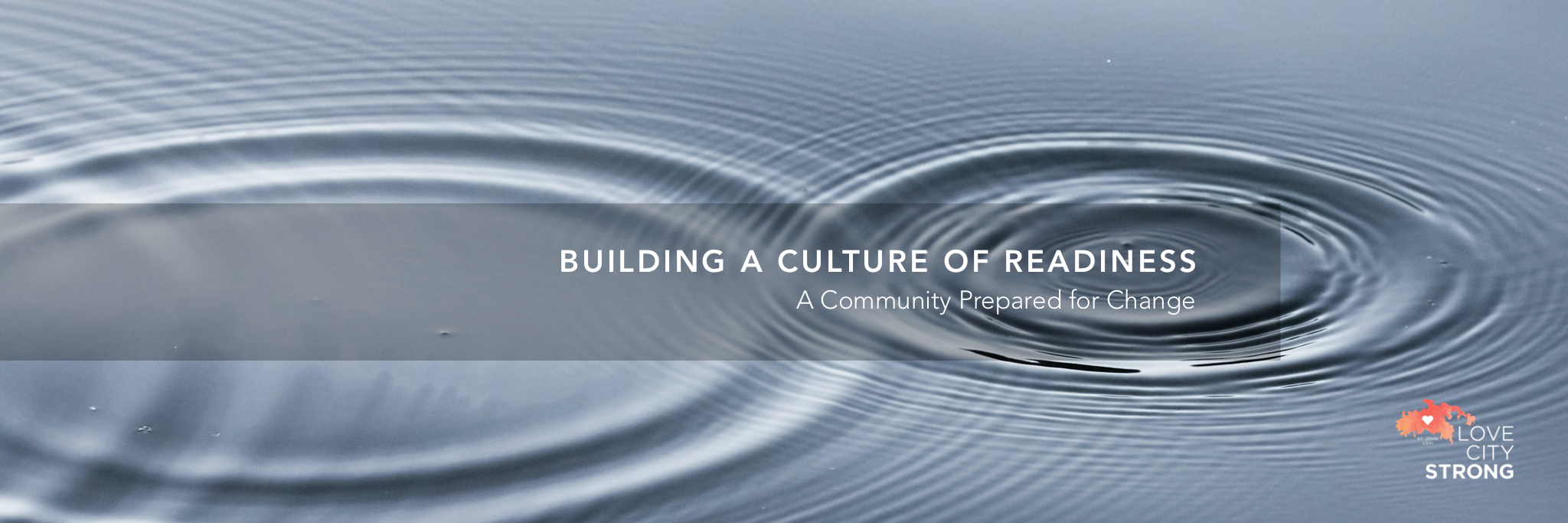
Building a Culture of Readiness

What is a “culture of readiness”, and why is it important? We often hear about building a culture of preparedness, in the context of emergency management. However, as a community recovers from a disaster impact they must not only be prepared, they must be ready for and open to change. The same is true for a society in the throes of a pandemic, learning the “new normal”. Change is inevitable, and a resilient and ready community embraces this truth.
The Influence of Culture
All people are influenced by cultural factors that shape their decisions and viewpoints. Each of us grow up learning how to value certain ways of doing and perceiving things. Culture is the ultimate cross-sector exercise, encompassing economics, belief systems, family structure, child-rearing, nature, and even risk management. Even seemingly unrelated areas of our lives are tied together by culture. In small, close knit communities like the US Virgin Islands, and St John in particular, culture influences decisions daily.
A Culture of Preparedness
One of the reasons that a grassroots approach to preparedness and readiness is so important is that if community engagement does not align with the community’s culture, the effort will not be sustainable. FEMA identifies the four guiding principles of culturally informed preparedness initiatives as Trust, Inclusion, Cross-Cultural Communication, and Support for Local Practices and Successes. Given these four components, a community can build sustainable preparedness practices.
FEMA’s stated goal of building a “culture of preparedness” is centered on achieving a certain level of cultural buy-in about preparing for disasters. Often, communities who have not been impacted don’t share the sense of urgency that characterize communities in recovery. A shared culture in this area would normalize the conversations necessary to increase preparedness before an impact, rather than after the fact. However, the question remains: Is a “prepared” community also necessarily a “ready” community?
Beyond Preparedness, to Readiness
A culture of readiness embodies not just preparedness but a willingness to move towards something different. This openness then enables healthy and sustainable change. Whether you’re building a change-ready organization or community, remaining open to feedback, is a critical trait. Feedback, whether in the form of questions, challenges, or disagreement, often helps to drive meaningful change. Challenging your own assumptions can result in more effective solutions. An organization or community can benefit from discussion in the same way, often identifying unmet needs, underserved populations, or underperforming sectors through public engagement. Therefore, it is important, within a culture of readiness, to establish structures that allow people to be actively involved in decision making processes, bringing in the right stakeholders at the right level at the right time. When the whole community feels included and heard, change feels less stressful and more intentional.
Our goal at Love City Strong is to build a culture of readiness within our community. As we recover from the twin Category 5 hurricanes of 2017 and emerge from the last two years marked by global pandemic, the Virgin Islands community truly understands that preparedness and readiness go hand in hand. We must be prepared for future climate related crises, and we must also be ready for the rapid period of change in which we find ourselves.
